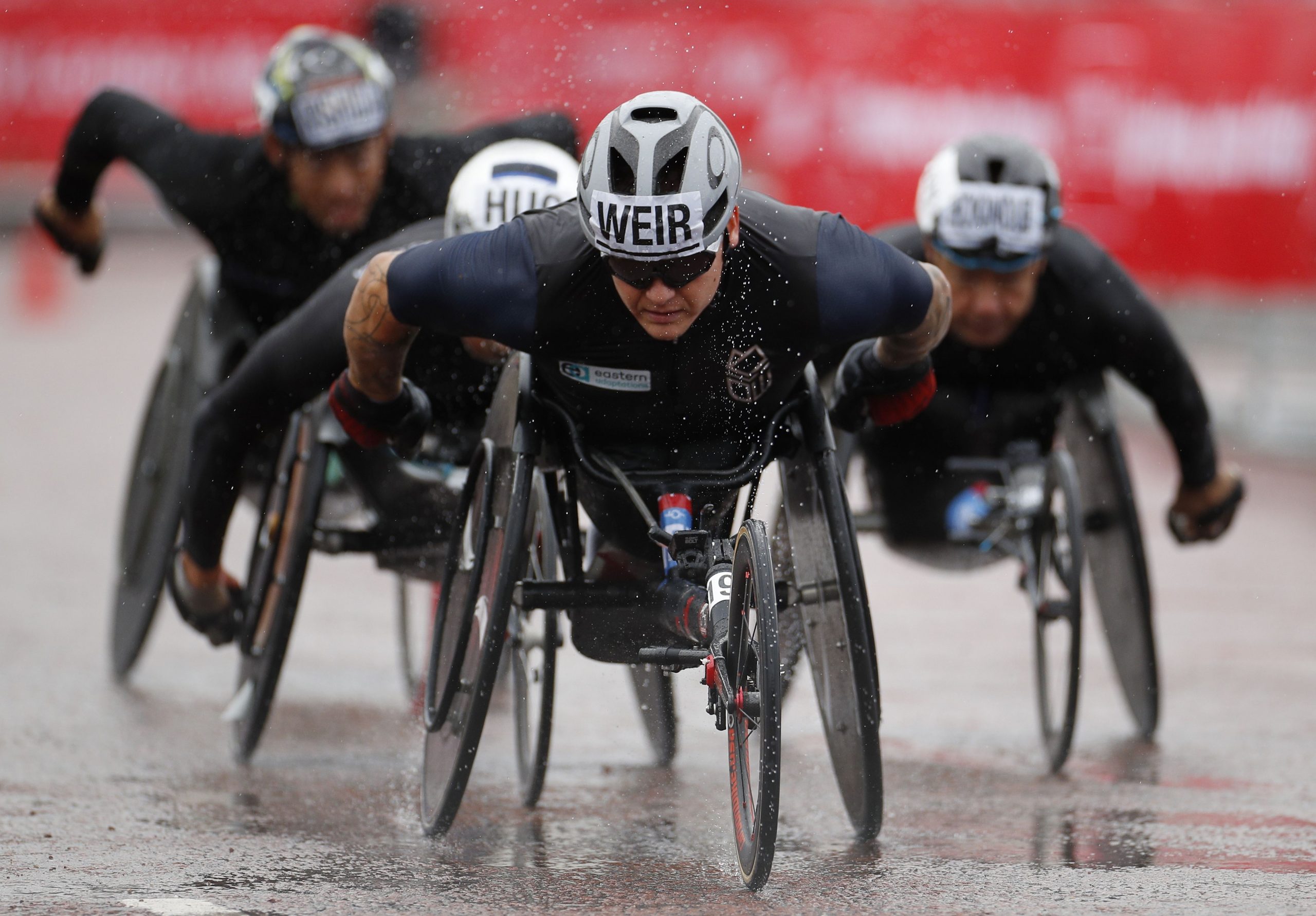David Weir’s account verification rejection by Instagram highlights the lack of recognition for para-athletes and para-athletics in general.
Despite winning six Paralympic gold medals, eight London marathons and being a Commander of the British Empire (CBE), Weir was unable to get a blue verification tick for his Instagram account because according to their regulations, he didn’t meet the requirements.
Weir, who has also received of an honorary Doctorate of Science from Kingston University, complained about the rejection on his Instagram page, highlighting that ‘influencers’ who achieve far less in their careers have been verified. None of the the major sports publications in England picked up on this story.
Para-athlete Matt Cooper, who has trained alongside Weir at the Weir Archer Academy, believes that a lack of exposure of para-athletics on television makes it difficult for the watching world to fully understand.
He said: “I think the biggest problem is the lack of publicity. The only time the majority of people hear or see about para-athletics is at the Paralympic or Commonwealth Games which are every few years and even then not everyone watches it when it is televised.
Saying this, able-bodied athletics are not often televised either so that makes para-athletics a very niche thing for people to consume.”
Cooper believes that governing bodies need to do more for para-athletics to be fairly represented in the sporting world.
He said: “I think more needs to be done to bring both able-bodied and para-athletics together by combining maybe a world championships or adding more disability events to the commonwealth games. This would mean more publicity for athletes and therefore more sponsorship opportunities.”
Channel 4 has hosted live coverage of the Paralympic Games since London 2012, gaining high praise for its promotion of para-athletics and parasport in general.
Despite this, coverage of para-athletics is few and far between and mostly limited to the major sporting events.
Cooper believes that equal coverage of these athletics events would help increase the popularity and understanding of para-sports.
He said: “Disabled athletes often get overlooked because they are overshadowed by able-bodied counterparts but by putting both on the same stage this would do a lot for para-athletics in my opinion.”
So will the achievements of the likes of David Weir always be undervalued?
Cooper said: “Mo Farah gets a knighthood and brand deals worth hundreds and thousands of pounds and Dave can’t get verified on Instagram.”
He points to his personal experience to show the difference between the treatment of para-athletes and their able-bodied counterparts.
“It’s something I have also experienced. I won 3 medals at the Junior World Championships in 2019. I got no prize money and no sponsorship opportunities as a result which is incredibly demotivating.”
Cooper says that considering the time and effort that he put into his craft, his achievements should be recognised equally alongside able-bodied competitors.
He said: “I took a whole gap year to fully commit myself to my sport and only had a vest and a few medals to show for it. I’m incredibly proud of my achievements and regret nothing but more needs to be done to fix issues such as these.”
Cooper isn’t the only successful para-athlete from the Weir Archer Academy that feels more has to be done to promote para sports competitors.
Eden Rainbow-Cooper, a Kingston University student and wheelchair athlete who has won a gold medal for Great Britain in a Diamond League meeting, says that the lack of media attention means that the general public doesn’t understand parasports.
She said: “I think that people just don’t understand about the sports, as they aren’t very mainstream, abler bodied individuals don’t ever learn about parasports. There is such a lack of representation shown in the media for para-athletes and parasport that people just simple really know what it is.”
Rainbow-Cooper also says that if people were educated on the variety of para-sports, this would help with an increase in understanding of them.
She said: “I think if we were taught more at school about para-sport there would be a huge increase in respect. Children would learn about it at a younger age and then be more open to learning more later on in life.
I mean there are even disabled individuals out there who don’t really know about para-sport either. Either because they live in a place where being disabled is seen as an illness or some sort of problem or because they just don’t have people around them with an understanding.”
Rainbow-Cooper also says that if more is spoken about disability, people will gain more of an understanding about and perceptions can change.
She said: “The topic of disability is still considered taboo by many and the best thing to do is just start a conversation about it. From a conversation, a lot can happen.”
The fact that Weir, a man who has represented his nation on the biggest stages and achieved so much success, cannot get a blue tick on Instagram, but able-bodied athletes who have achieved similar success are household names, shows a worrying lack of recognition for para-athletes who have worked so hard to be successful.

